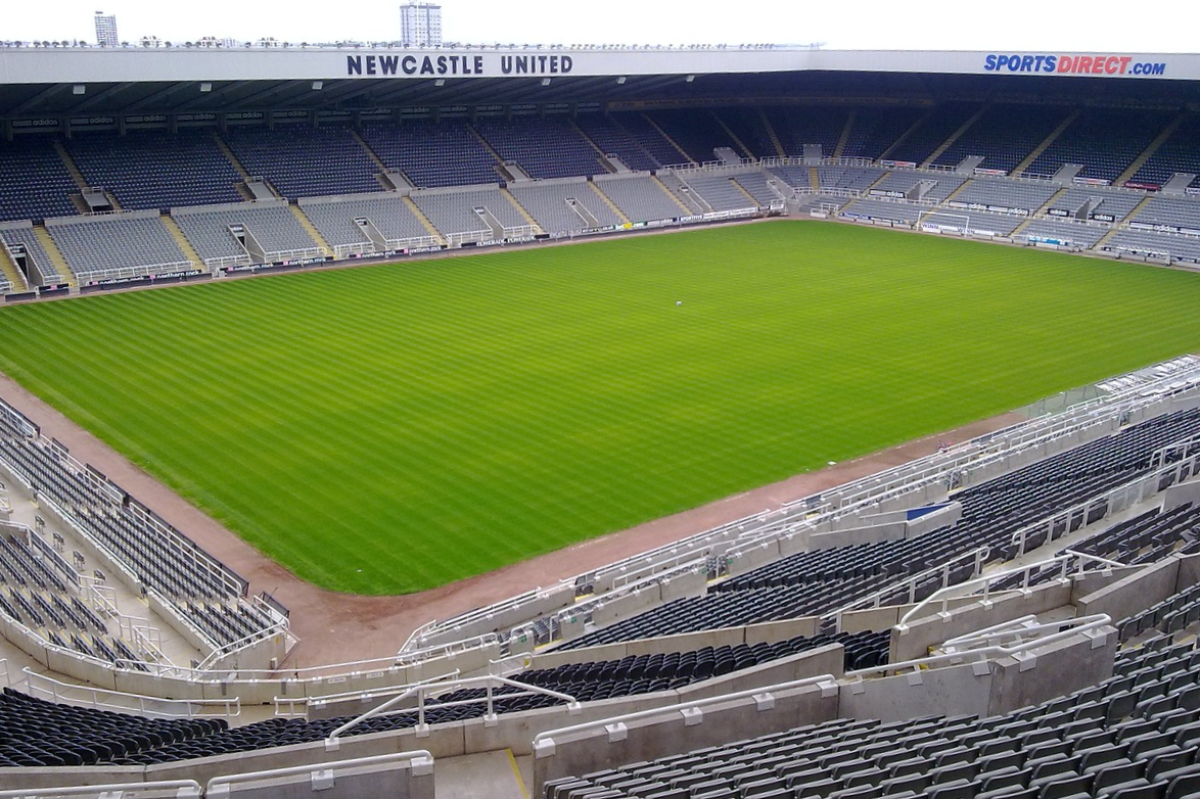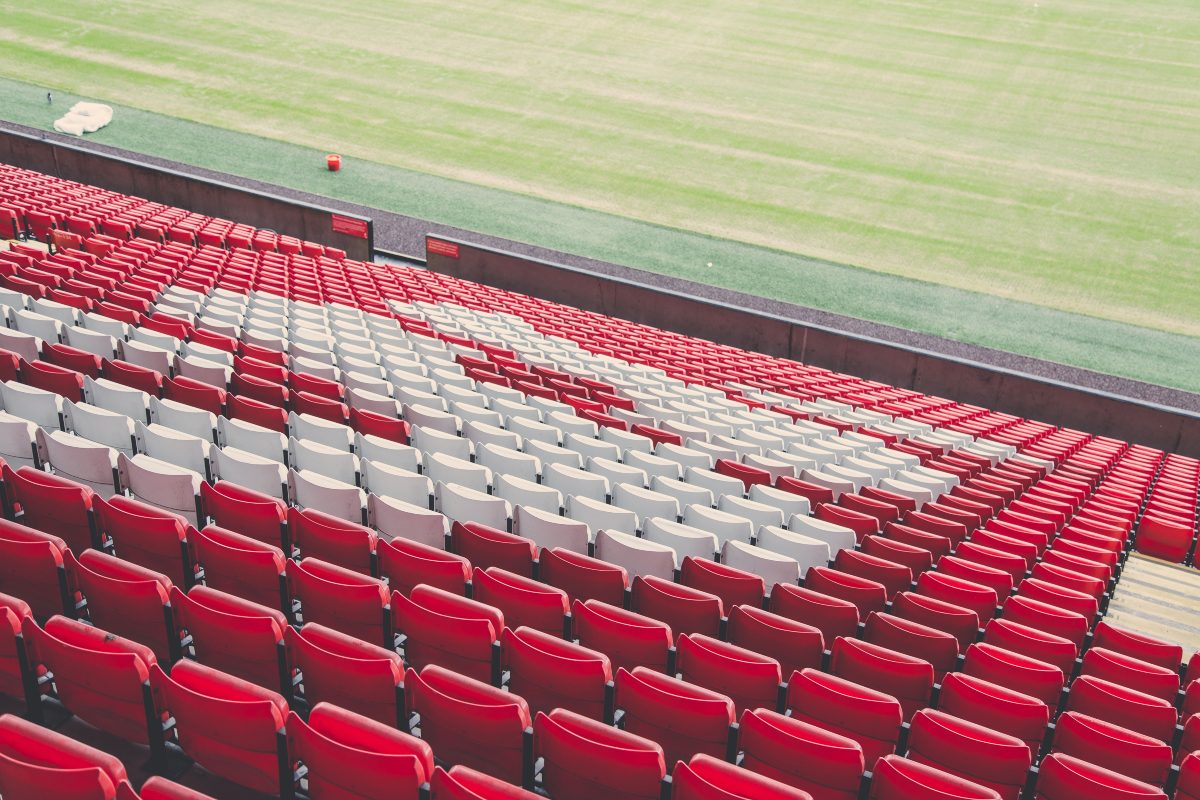Recent events have sent shockwaves across English football, with the top clubs looking to seize profits and power at the expense of fans and lower league clubs. We must fight to kick capitalism out of the beautiful game.
Even before the pandemic, English football was already suffering a financial crisis. The closure of stadiums due to COVID restrictions has only exacerbated this precarious situation.
But as Winston Churchill cynically remarked: one should never let a good crisis go to waste. And so the ‘Big Six’ in the Premier League have spotted the perfect opportunity for a power grab to try to cement their place at the top. At the same time, these elite clubs have promised a few crumbs for the smaller professional teams in the English Football League (EFL).
This desire to profit from disaster was demonstrated when the Premier League began charging fans extra to watch certain games on television – matches that had previously been offered as part of existing subscription packages. However, this has sparked a large backlash from supporter’s groups.
Financial crisis
 The extent of the financial crisis facing English football should not be underestimated. Over the summer, there had been hope that a reduced number of fans would be allowed back into stadiums from October onwards. This would have alleviated some of the financial pressure.
The extent of the financial crisis facing English football should not be underestimated. Over the summer, there had been hope that a reduced number of fans would be allowed back into stadiums from October onwards. This would have alleviated some of the financial pressure.
But with the second wave now in full swing and another national lockdown beginning this week, there is a serious concern amongst fans that they may not be back in stadiums for the entirety of this season.
Lower league clubs almost completely rely on gate revenue. A season-long shutdown could therefore prove to be disastrous. Some lower league clubs will likely not be able to survive beyond Christmas, if there is no bailout offered to clubs.
The bigger clubs are in a much stronger position to take the financial hit. But even these giant names of the football world have been affected. Manchester United, for example, recently reported that the pandemic has cost them around £70 million in revenue so far.
Project Big Picture
When the ‘Project Big Picture’ proposals were leaked to the media, the initial headline was the promise that a £250 million bailout would be given to the EFL, along with a guarantee to share 25% of future TV deals with EFL clubs. But when the small print was studied, a much different picture emerged.
The most startling proposal was changes to the voting rules within the Premier League. Currently the support of 14 out of the top 20 clubs is required for any rule changes to be approved. But under the new plans, the nine longest-serving clubs would be given ‘special shareholder’ status. Voting would only be done by these nine, with six votes in favour required to bring in rule changes.
Many sports journalists labelled this what it was: an attempted power grab. After all, if the aim was simply to improve the game as a whole, why did the biggest clubs wait until smaller clubs were desperate to try and push through these proposals?
Upon closer inspection, even the crumbs offered to lower league clubs are not as generous as they seem. The EFL’s own TV deal would be included in the 25% – a deal that they currently keep 100% of.
Furthermore, the Premier League’s overseas TV deal would only contain a third of matches, with the rest being shown on pay-per-view. This would significantly reduce its value, with the pay-per-view revenue being kept by the clubs involved in the match. The EFL Cup would also be scrapped, which would further limit income for EFL clubs.
It quickly emerged that this was a proposal made without any consultation. Only the ‘Big Six’ clubs seem to have been involved in the decision, along with EFL Chairman (and former Premier League Chief Executive) Rick Parry.
With other Premier League teams unsurprisingly coming out against the proposals, they have officially been declared ‘dead’. They do, however, demonstrate the murky world of football clubs being run as profit-making businesses, with dodgy backroom deals and no consultation with fans.
Monday’s Guardian reports on “Project Big Picture” – a proposal to fundamentally reform football in the age of coronavirus that says everything about the priorities of the power brokers in the English game. pic.twitter.com/VEkIEZ7xJu
— beesbulletin (@beesbulletin) October 11, 2020
Pay-per-view fightback
 Even within the current dire situation, Premier League clubs couldn’t resist the temptation to further profit from fans being unable to attend games.
Even within the current dire situation, Premier League clubs couldn’t resist the temptation to further profit from fans being unable to attend games.
Since football resumed, all Premier League games had been shown on either Sky Sports or BT Sports, as part of existing subscriptions. The decision was made, however, to start charging fans £14.95 to watch games that were not picked by these TV channels, on top of existing subscriptions. This affects just under half of all games.
This has sparked significant opposition from fans. This should come as no surprise. Many fans have paid large amounts for season tickets already, and are also paying significant sums for TV subscriptions. Some also feared that this was a ‘test run’ for moving all games towards this model, as a way for the bigger clubs to extract as much profit from fans as possible.
The fightback from fans has been significant. Supporters groups have encouraged fans to boycott these games, and instead donate the £14.95 to local food banks. Despite only being recently organised by a few supporters’ groups – on a fairly small scale – over £300,000 has been raised so far.
This shows the true traditions of football clubs: centres of working-class communities, not profit-making machines for billionaires.
Ending the gravy train
 For the majority of supporters, none of these recent developments will come as a shock. Nevertheless, the last few weeks have provided a potent reminder of what sport looks like when it is controlled by and run for a tiny elite of wealthy owners.
For the majority of supporters, none of these recent developments will come as a shock. Nevertheless, the last few weeks have provided a potent reminder of what sport looks like when it is controlled by and run for a tiny elite of wealthy owners.
The Project Big Picture proposals and the profiteering from pay-per-view have shown that the biggest (and richest) clubs will use every means possible to embed their position at the top.
The current campaigns underway may well end the pay-per-view rip off. But it is widely understood amongst football fans that a grassroots movement is also required against the wider commercialisation of the ‘beautiful game’.
Only by kicking out the profiteers can we ensure that football is run for the benefit of working-class communities and fans, instead of the interests of big business and the bosses.






